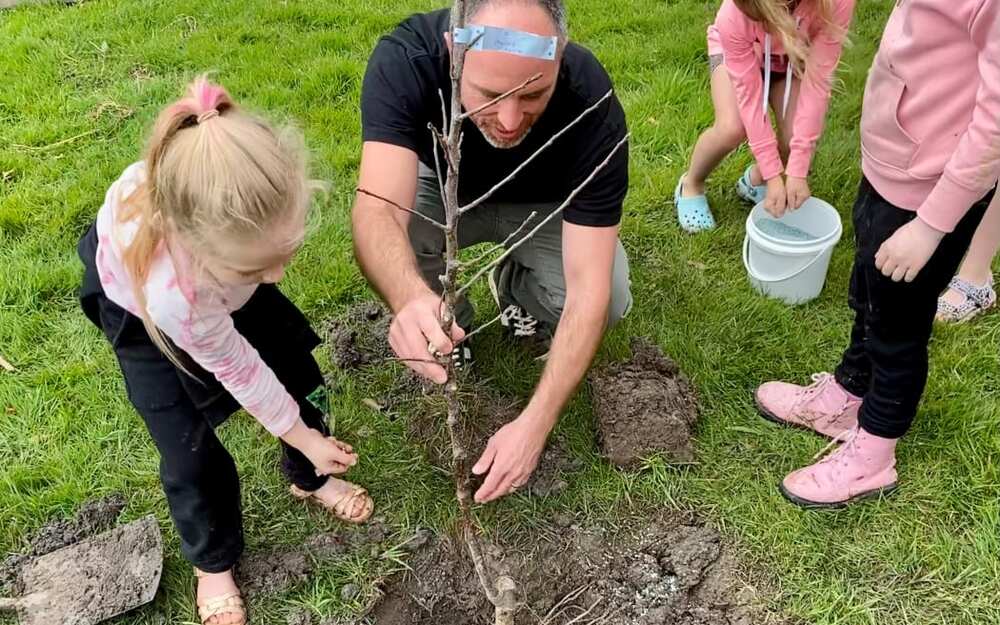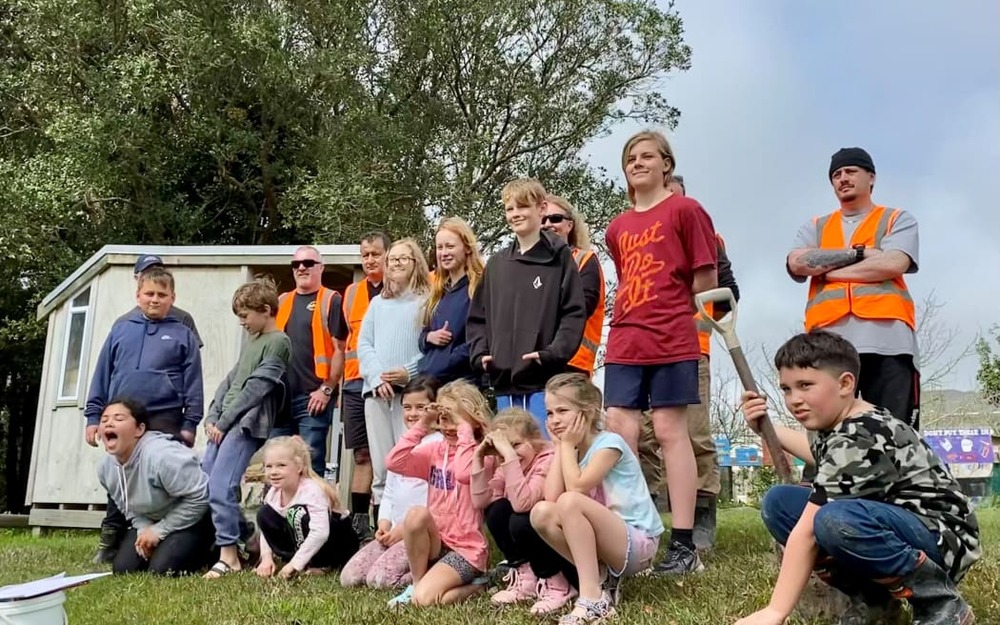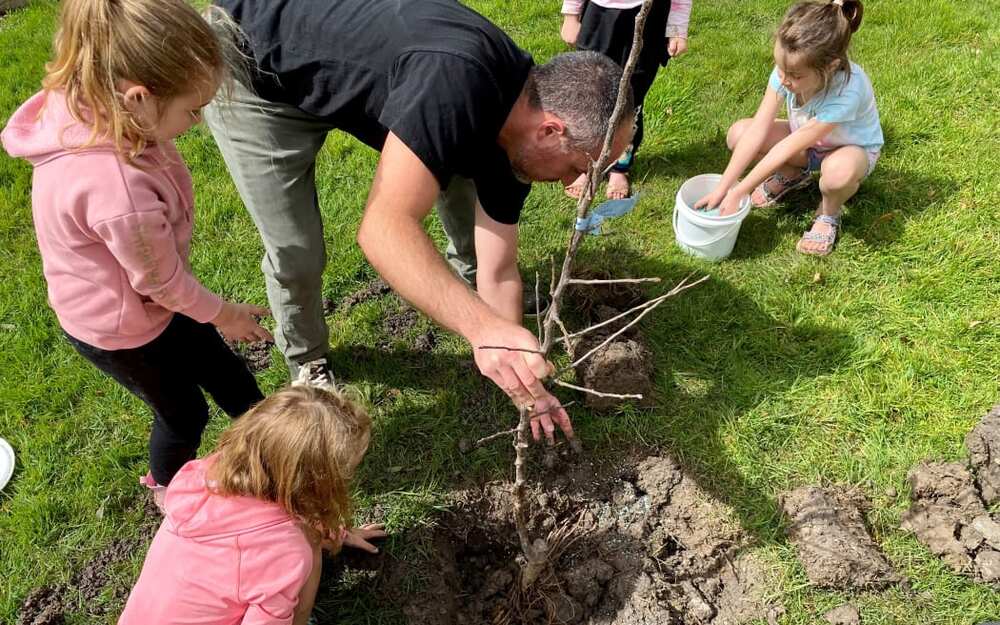Why Rural Schools Rule
RNZ
31 October 2023, 5:42 PM
 Tomarata School principal Chris King. Photo: RNZ/Leah Tebbutt
Tomarata School principal Chris King. Photo: RNZ/Leah TebbuttLeah Tebbutt, Producer and Reporter.
Tomarata School is more than a school - it's a hub for the community that surrounds it.
While chickens cluck loudly in harmony with the sound of children playing, cows peer over the neighbouring fence to glimpse what they're missing out on.
In the summer evenings, a pile of utes line the school fence while the farmers that drive them use the school's courts for a match of tennis.
And while Country Life visits, pupils are busy planting fruit trees kindly donated by Ballance Agirnutrients.
Click here to listen to the audio file
Principal Chris King believes there is such a unique element to a country school that they will always exist.
"I understand why there's a pull to a bigger school. There may be different opportunities there.
"But the uniqueness of a small school and the more personalised approach to education, I think it's really special and I think the community recognises that."

Tomarata school pupils planting fruit trees. Photo: RNZ/Leah Tebbutt
Tomarata is Auckland's northernmost school situated halfway between Pakiri Beach and Mangawhai in the Wellsford area.
It's just shy of celebrating 90 years after being established in 1934, which is a feat for any country school after many rural-based schools were shut down under Trevor Mallard at the turn of the century.
King says in a community such as Tomarata the school is a hub and its role and importance shone earlier in the year when a local family's house was affected by the Auckland floods.
King says they found comfort at the school where staff made them cups of tea and cared for them until short-term housing was available.

There are 62 children on the Tomarata School roll. Photo: RNZ/Leah Tebbutt
"I think the community views the school as a meeting place and a place that's historical and important to the community.
"There's just a lot of community buy-in to the school, not just the parent community."
Tomarata School is host to an orchard, chickens, vegetable gardens, and an off-site Nature Classroom, set in native bush, where students learn bush craft, plant identification, and how to be kaitiaki of the natural environment.
King says the rural philosophy helps children feel connected.
"It's part of our school's vision that kids will be outdoors, enjoying the outdoors, being healthy and getting involved. So things like having the fruit trees and the chickens and the vegetable gardens, are just ways to get kids outdoors and interacting with nature.
"You see the smiles on their faces. And I guess that's reassurance that we're on the right track."

One of the benefits of rural schools is the ability to connect with nature. Photo: RNZ/Leah Tebbutt
Once, dozens of local farms sent their children to the school, however, as these farms have been bought by bigger corporate setups the student population has changed, King says.
"Now, there are many children who come from families of farm workers. These families often move around from season to season, so our student population has become quite nomadic."
There are 62 children on the school roll. King hopes there will be another, somewhat special pupil, starting soon - his daughter.
King was enlisted as the principal at the beginning of the year. He, his wife and four-year-old daughter made the 1700km journey from Invercargill.
"The thing that appealed to me was...reading the vision and values of the school and it resonated with me. And my wife and I had the conversation that wouldn't that be a great school to send our daughter to."
This story was originally published by RNZ




